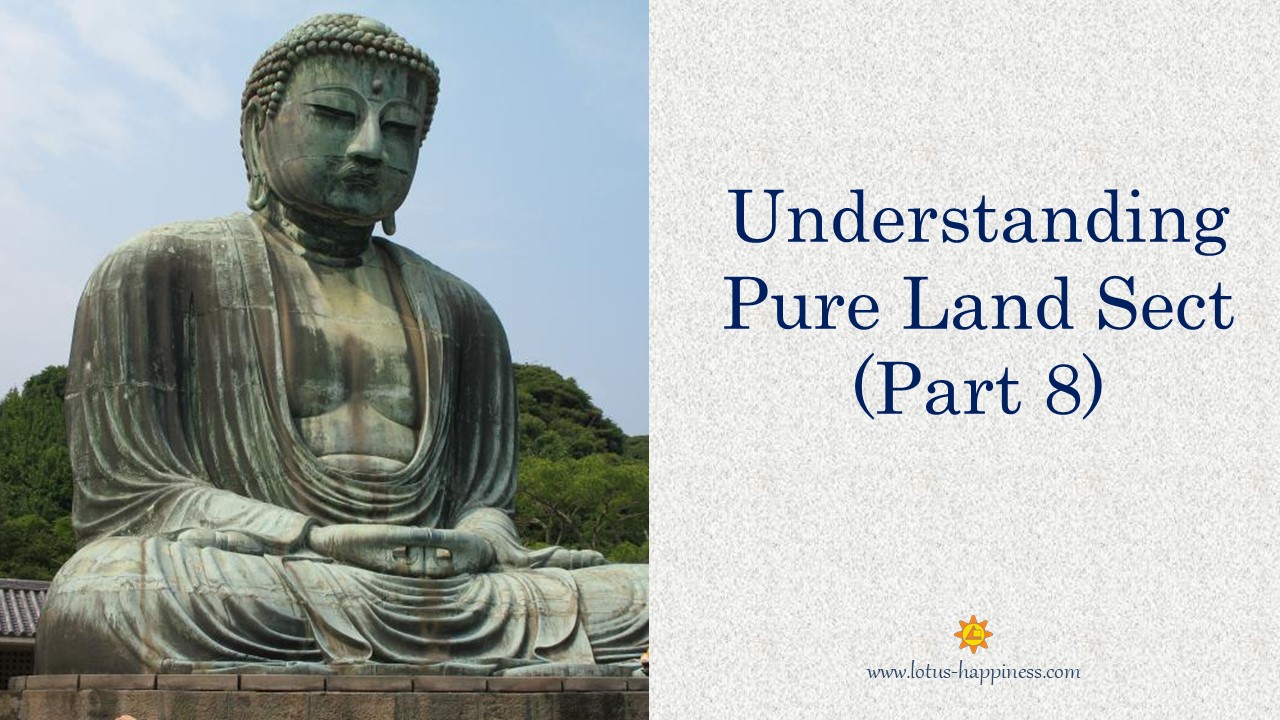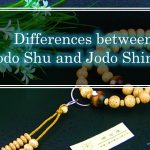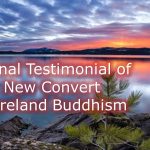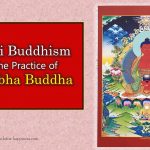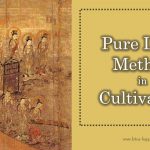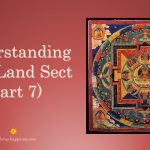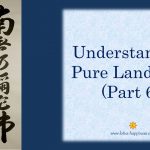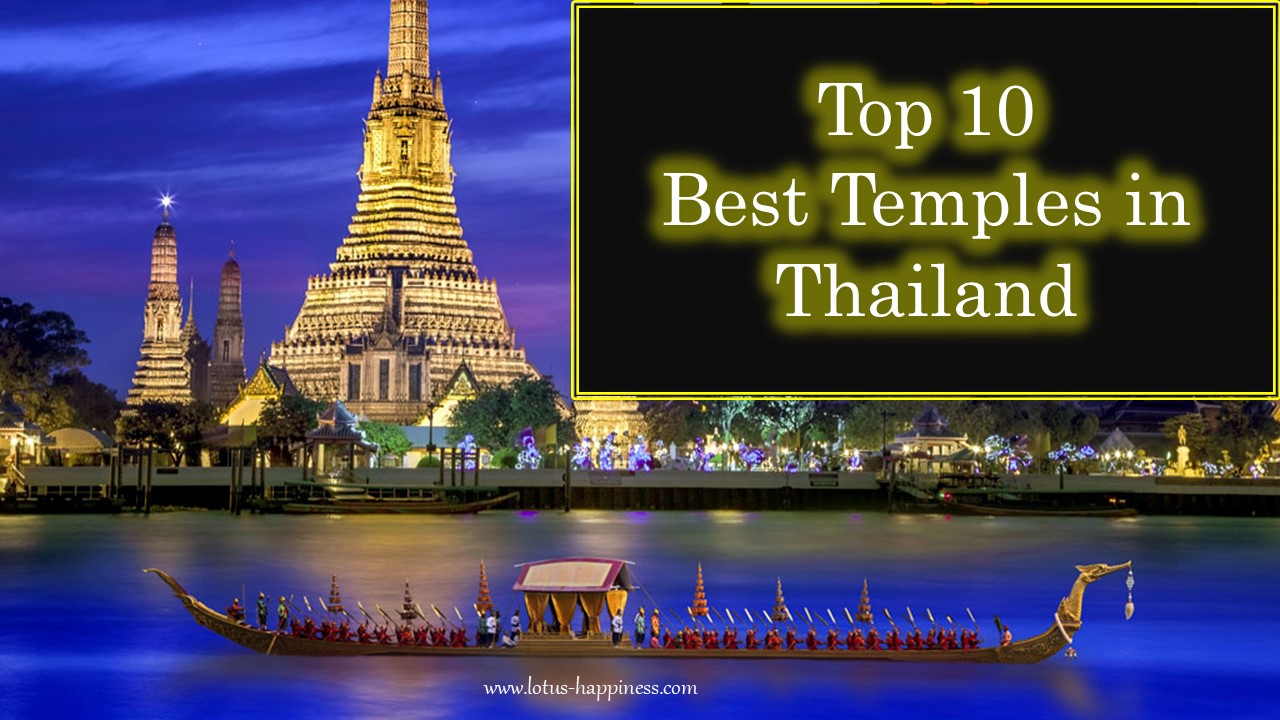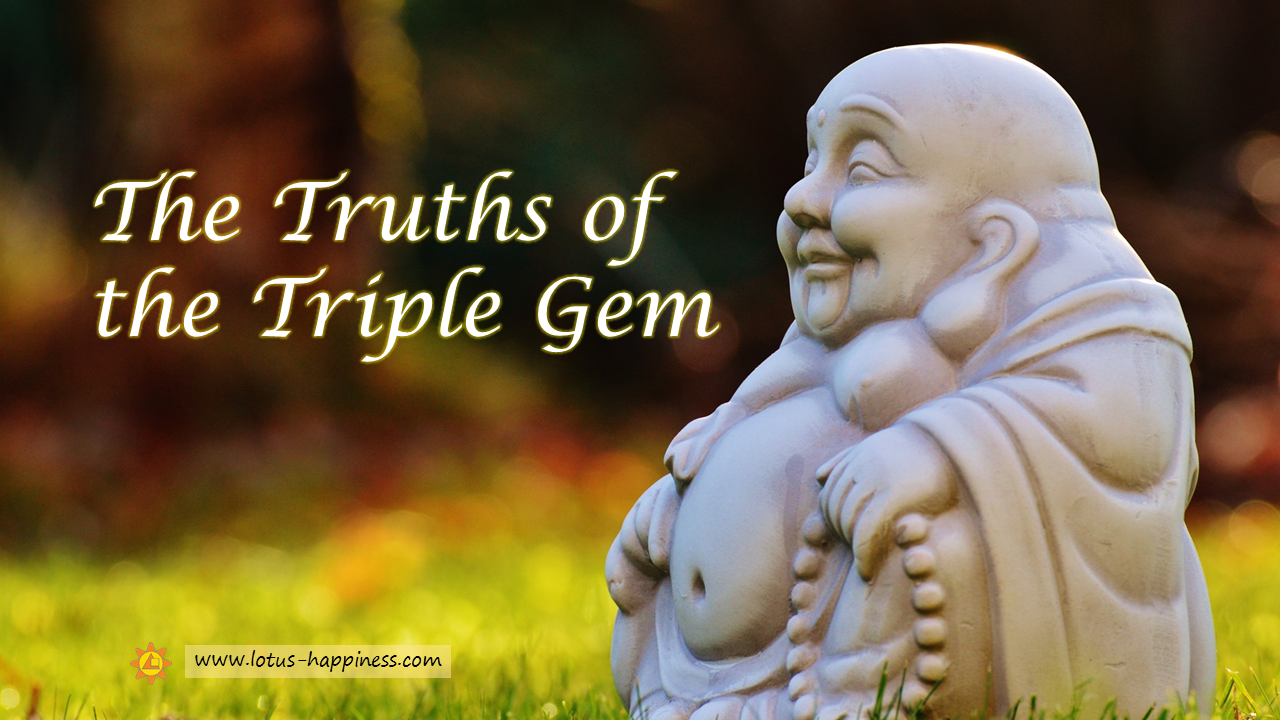Understanding Pure Land Sect (Part 8)
Other Methods of Practice in Pure Land Buddhism
Apart from the Buddha Remembrance or ‘Nien-fo’ [念佛], there are other methods of practice in Pure Land Buddhism.
Recitation of Mantra
Recitation of Mantra is one of the essential methods of practice in Esoteric Buddhism. A Mantra are some secret words from the corresponding Buddha or Bodhisattva, full of wonder in the same way that the sense data can be sublimated. Thus it is an effective way to get the response from the corresponding Buddhas or Bodhisattvas. In Pure Land Buddhism, the most popular Mantra is the Mantra of Rebirth [往生咒] in the Pure Land, and the corresponding Buddha of this Mantra is, of course, Amitabha Buddha. It is transliterated as follows:
Namo Amitabhaya Tathagathaya Tadyatha Amrttabhave Amrtasmbhave Amrtavikrante Amrtavikrantagamini Gagana Kirtichare Swaha
Generally, Mantra is impossible to translate its esoteric meaning, thus it is not translated nor interpreted with a meaning, but the superficial meaning of this Mantra is rendered by a venerable master, for reference, as follows:
We take refuge in the Tathagata Amitabha. Be it thus: that Immortality has become, that Immortality has perfectly become, that Immortality has progressed, that Immortality is progressing, going forward in the glorious Transcendental Way – Swaha!
The practitioner is required to recite the Mantra in order to realize singleness of mind. When the devotee is about to die, either the Buddha’s name or this Mantra is repeated by himself, his family or his Buddhist friends so that the rebirth in the Western Pure Land is achieved.
The recitation of this Mantra always serves as a part of the ritual ceremony, particularly the Pure Land Dharma assembly in the monastery.
Sometimes, the practitioner can sit in a full lotus position, and put his left palm on the top of the right with the tips of the thumbs touching each other, which is said to be the Mudra of Amitabha Buddha.
Samadhi of Recitation of Buddha-name
The Samadhi of reciting the Buddha-name [念佛三昧] is called One-practice Samadhi [一行三昧].
This is because the people who practice it comprehend its profound intent and are able to uphold it single-mindedly without becoming involved with other practices, so they are only mindful of the Pure Land, and only remember Amitabha Buddha. They know that Amitabha’s body and the Pure Land are not two, and mindfulness of the Pure Land and remembrance of Amitabha are one. Hence it is called “One-practice [一行].”
Nevertheless, though it is called one-practice, those who practice it also must use as aids in the Path all the countless worldly and world-transcending Dharmas, and all the meritorious practices, and thus proceed quickly to be born in the Pure Land.
Therefore all practices are Pure Land, and no divergent roads are cultivated. It is called Unified Practice. This can be compared to the myriad streams, which all flow into the sea, and all get the same name, “the sea.” The myriad virtues all return together and get the name “One-practice”. Thus all forms of mindfulness, correct effort, and awakening to the Path, the Four Great Vows and the Six Perfections (or Six Paramitas) are all Pure Land practices.
Remembering and Missing Buddha [憶佛]
The Surangama Sutra quotes Mahasthamaprata Bodhisattva as saying,
“I remember when, as many aeons ago as there are sands in the Ganges, a Buddha called Limitless Light appeared in the world. In that same aeon there were twelve successive Thus Come Ones; the last was called Light Surpassing the Sun and Moon. That Buddha taught me the Buddha-recitation Samadhi.
“Suppose there were a person who always remembers someone else, but the someone else he remembers has entirely forgotten about him. If two such people were to meet, even if they were to see each other, they would not notice. They would not recognize each other.
“If two people remember each other until the memory of each is deep, then in life, they will be together like a form and its shadow, and they will never be at odds.
“Out of pity for living beings, the Thus Come Ones of the ten directions are mindful of them as a mother remembers her child. If the child runs away, of what use is the mother’s regard? But if the child remembers his mother in the same way that the mother remembers the child, then in life after life the mother and child will not be far apart.
“If living beings remember the Buddha and are mindful of the Buddha, certainly they will see the Buddha now or in the future.
“They will never be far from the Buddha, and their minds will be awaken by themselves, without the aid of expedients.
“A person who has been near incense will carry a fragrance with the person; it is the same in this case. It is called an adornment of fragrant light.
“On the causal ground I used mindfulness of the Buddha to enter into patience with the non-production of Dharmas. Now in this world I gather all those who are mindful of the Buddha and bring them back to the Pure Land.
Contemplation on the Lotus Blossom
One may visualize an object, like a great lotus, shaped like a wheel and colored blue, yellow, red or white, etc. It should be noted that all beings give birth to Sukhavati in the blossom of lotus flower, rather than in a womb as we are born in this Saha world.
During meditation and Buddha recitation, always contemplate this lotus blossom clearly, think of sitting on this lotus seat, and think of Amitabha Buddha emitting light shining on one’s body. While visualizing, not to be bound by walking, standing, sitting or reclining positions, and not to be bound by time as well. Just visualize the Pure Land clearly, whether one’s eyes are open or close. Even in the dreams, one should see Amitabha Buddha, Avalokitesvara and Mahasthamaprapta and all other Bodhisattvas sitting each on his own lotus blossom, who are all radiant and clear.
If the practitioner can visualize the lotus flower with complete concentration until the final moment, he can end the cycle of birth and death. At the time of death, the lotus will appear before him and he will see himself seated upon it. He may also see Amitabha Buddha and/or other Bodhisattvas to welcome him for the rebirth in Sukhavati.
Five Recollection Gates [五念門]
In the writing of Master Tan Luan, he identified five practices in Pure Land Buddhism. They are:
- Prostration to Amitabha with body, such as bowing [禮拜門]
- Reciting his name in the mouth [讚歎門]
- Resolving to be born in the Pure Land in mind [作願門]
- Visualizing the splendor in the Pure Land [觀察門]
- Resolving to bestow or transfer the merits to the Pure Land [迴向門]
The last practice means sharing one’s merit in this world and to be born again in this world in order to help others after gaining enlightenment in the Pure Land.
Five Proper Courses [五正行]
They are the ‘proper’ courses in the adoration of Amitabha Buddha to ensure the bliss in Sukhavati. Adoration of the other Buddhas is called ‘improper’, relatively speaking. The five proper courses are:
- Intone to the Three Sutras [讀誦正行]
- Meditate on the Pure Land [觀察正行]
- Worship solely the Amitabha Buddha [禮拜正行]
- Invoke his name [稱名正行]
- Extol and make offering to him [讚歎供養正行].
Ten Great Benefits of Reciting Buddha-name
The Sutras say that those who hold the Buddha’s name with utmost sincerity will derive ten great benefits in this life:
- Day and night they enjoy the invisible protection of all celestial beings, powerful deities and their `multitudes of retainers?
- Twenty-five great Bodhisattvas, including the Bodhisattva Avalokitesvara (Kuan Yin) and all the other Bodhisattvas, constantly keep them in mind and protect them;
- They enjoy the continuous aid and protection of the Buddhas; Amitabha Buddha emits constant light to gather them;
- No evil demons, ferocious dragons, poisonous snakes or the like can harm them;
- They do not meet with such calamities as drowning, burning or other violent death, nor do they encounter such punishment as being shackled and imprisoned;
- Previous evil Karma is gradually dissipated; the spirits of those whom they have murdered in past lives are liberated and no longer seek revenge;
- They have restful sleep or dream of auspicious events or view the supremely wonderful body of Amitabha Buddha;
- Their Minds are always joyful and at peace, their complexions clear and bright, their bodies filled with energy and strength; whatever they undertake generally will success;
- They are always honored and assisted by others, and are gladly given the same respect reserved for the Buddhas;
- At the time of death, they would not experience fright, as the right thoughts, and would manifest themselves; they would witness Amitabha Buddha and the Holy Assembly.
Since Buddha Recitation can bring such benefits in the present and the future lives a, it is the most important of all mundane and supra-mundane Dharma methods in the Buddhist practice.

